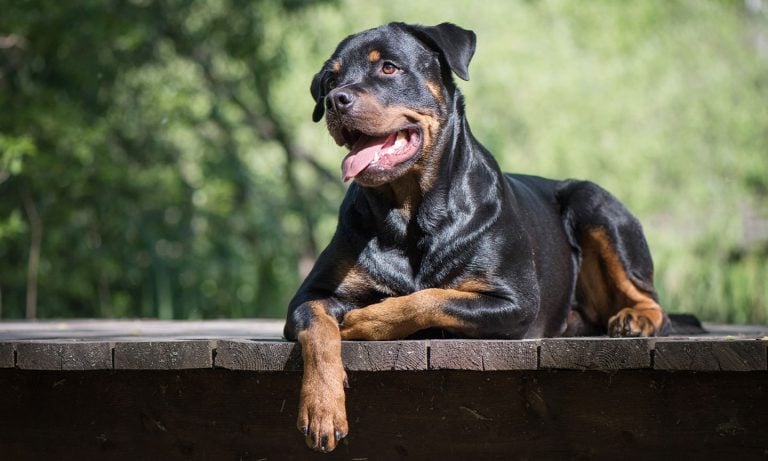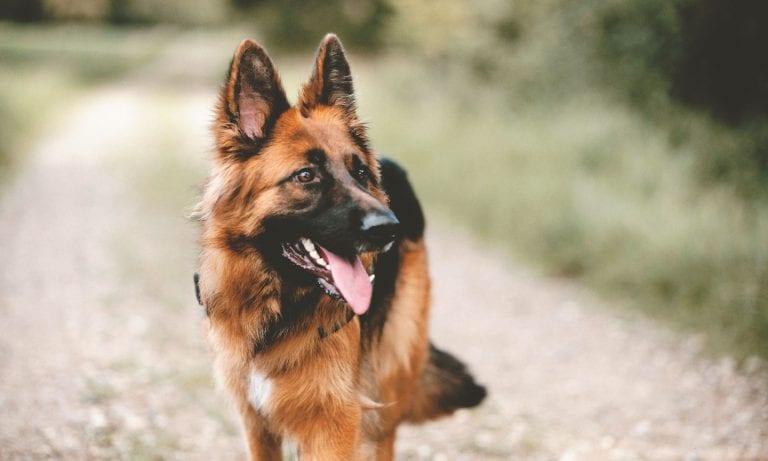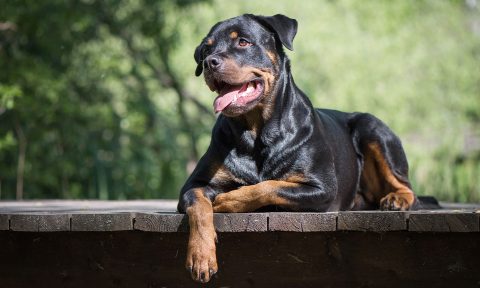Rottweiler vs German Shepherd

Breed Snapshot
Best For
A popular working breed, Rottweilers do best with experienced pet parents who can provide early training and socialization. These robust, large-sized dogs thrive in homes with active individuals or families, appreciating both mental and physical...
A popular working breed, Rottweilers do best with experienced pet parents who can provide early training and socialization. These robust, large-sized dogs thrive in homes with active individuals or families, appreciating both mental and physical challenges.
Rottweiler Temperament
Rottweilers are powerful and intelligent dogs who benefit from early training and socialization. They are easy to train and eager to please their families, but are also strong-willed and may seem aloof to the outside world. Originally descending from the mastiffs of the Roman legions, Rottweilers have been valuable...
Rottweilers are powerful and intelligent dogs who benefit from early training and socialization. They are easy to train and eager to please their families, but are also strong-willed and may seem aloof to the outside world.
Originally descending from the mastiffs of the Roman legions, Rottweilers have been valuable companion animals and working dogs for centuries. This is just as true today as it was years ago—families that are willing to put in the time to train and socialize their Rottweiler will be rewarded with an intensely loyal and energetic dog.
In fact, Rottweilers are much more emotionally needy than many people assume. This dog has a fearsome reputation, but in reality, Rottweilers are obsessed with their people and want to be around them all the time. Rottweilers who are isolated from people or kept alone may begin to exhibit unwanted behaviors when they do finally get access to people.
Rottweilers were originally bred to be protectors. Combined with their great strength, this makes it especially important that Rottweilers are properly trained and socialized. Once socialized, Rottweilers can easily get along with other dogs and young children. Like any dog, Rottweilers who are poorly trained, subjected to harsh discipline, or isolated are more likely to exhibit unwanted fear-based behaviors, including biting and aggression.
One especially interesting features of these dogs is their vocalization. Rottweilers aren’t known for excessive barking (although of course they can and will bark), but they do have a deep rumble that sounds almost like a growl. Some pet parents think of this rumbling sound as “talking.” This “Rottie rumbling” is almost like the purring of a giant cat and often means your Rottweiler is happy and content, particularly during belly rubs.
Rottweiler Traits

Breed Snapshot
Best For
German Shepherds, intelligent and loyal, thrive on mental challenges and active engagement. With a strong work ethic, they make exceptional working dogs. The rewarding companionship of a German Shepherd is perfect for those seeking a...
German Shepherds, intelligent and loyal, thrive on mental challenges and active engagement. With a strong work ethic, they make exceptional working dogs. The rewarding companionship of a German Shepherd is perfect for those seeking a devoted and versatile pup.
German Shepherd Temperament
The German Shepherd’s best trait is their intense, unwavering loyalty to their families. (There’s a reason they make some of the best police dogs.) The fearless breed has also been known to put themselves in harm’s way before they let a family member get hurt. Socializ...
The German Shepherd’s best trait is their intense, unwavering loyalty to their families. (There’s a reason they make some of the best police dogs.) The fearless breed has also been known to put themselves in harm’s way before they let a family member get hurt.
Socialization and training are essential for German Shepherds, to teach them that most things in this world are nothing to fear (and nothing that poses a threat to their loved ones, either). Early social interactions with kids, babies and other animals is also important if you want your German Shepherd to be well-behaved around guests. (Remember to teach children how to interact appropriately with dogs, too.) With the proper education, this easy-to-train pup can be a great family dog.
German Shepherds are born talkers. They will bark when they’re bored, and they’ll bark to alert you if something isn’t quite right. But training and exercise can help curb a lippy pup and keep their barking to when you need it the most.
These dogs are incredibly smart, and they are at their best when they have a job to do, whether working as a police or military dog, doing tracking or search and rescue, serving as a guide dog or at home practicing scent work or solving puzzles for a treat. And when they’re with their family, German Shepherds will let their silly side show as they flip their toys in the air and roll around on their backs.




